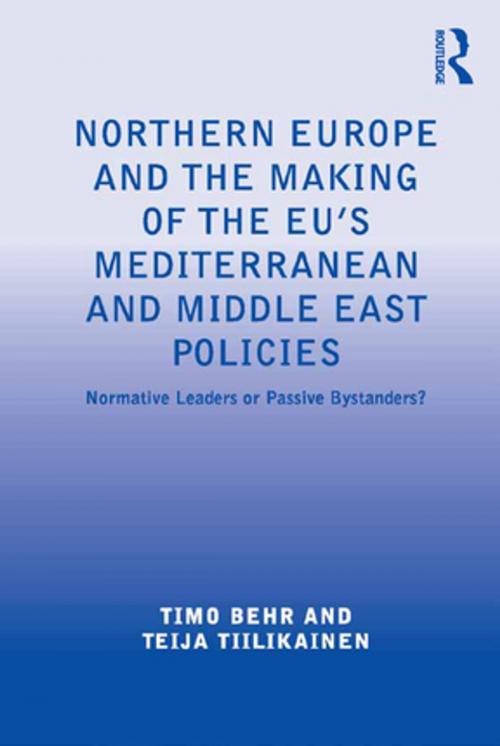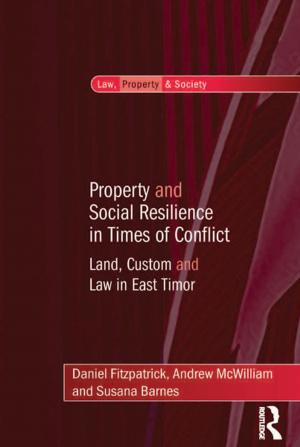Northern Europe and the Making of the EU's Mediterranean and Middle East Policies
Normative Leaders or Passive Bystanders?
Nonfiction, Social & Cultural Studies, Political Science, International, International Relations| Author: | Timo Behr, Teija Tiilikainen | ISBN: | 9781317086550 |
| Publisher: | Taylor and Francis | Publication: | May 23, 2016 |
| Imprint: | Routledge | Language: | English |
| Author: | Timo Behr, Teija Tiilikainen |
| ISBN: | 9781317086550 |
| Publisher: | Taylor and Francis |
| Publication: | May 23, 2016 |
| Imprint: | Routledge |
| Language: | English |
What drives European foreign policy towards the wider Mediterranean and Middle East region? This collection takes an innovative approach to answering this question, by considering the impact of intra-European divisions on European polices towards this crucial region. European foreign policy has traditionally been defined by a clear division of labour: southern European member states take the lead in the EU’s southern neighbourhood, while central and northern European countries drive policies in the EU’s eastern neighbourhood. The resulting north-south split has entrenched geo-clientalistic behaviour as a core principle of EU foreign policy-making and has fuelled a static intra-European competition over influence and resources. However, as European power dynamics shift, these old divisions no longer hold and northern and central European countries have been pushed towards a more pro-active role in the region. But what factors are shaping the foreign policies of these countries in the Mediterranean and Middle East? What has been their contribution to common EU polices? And does their growing activism signal an end to old geo-clientalistic division as a core driver of European foreign policy?
What drives European foreign policy towards the wider Mediterranean and Middle East region? This collection takes an innovative approach to answering this question, by considering the impact of intra-European divisions on European polices towards this crucial region. European foreign policy has traditionally been defined by a clear division of labour: southern European member states take the lead in the EU’s southern neighbourhood, while central and northern European countries drive policies in the EU’s eastern neighbourhood. The resulting north-south split has entrenched geo-clientalistic behaviour as a core principle of EU foreign policy-making and has fuelled a static intra-European competition over influence and resources. However, as European power dynamics shift, these old divisions no longer hold and northern and central European countries have been pushed towards a more pro-active role in the region. But what factors are shaping the foreign policies of these countries in the Mediterranean and Middle East? What has been their contribution to common EU polices? And does their growing activism signal an end to old geo-clientalistic division as a core driver of European foreign policy?















